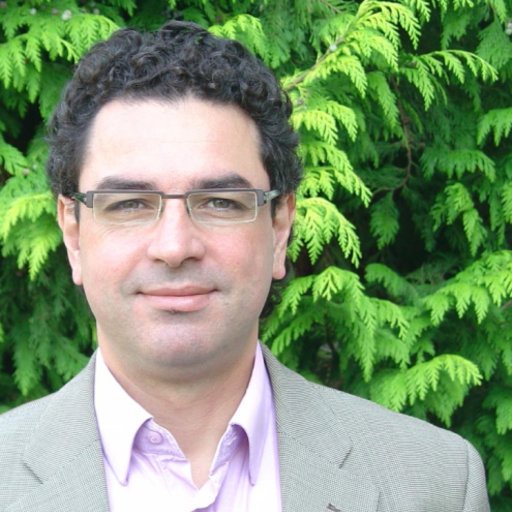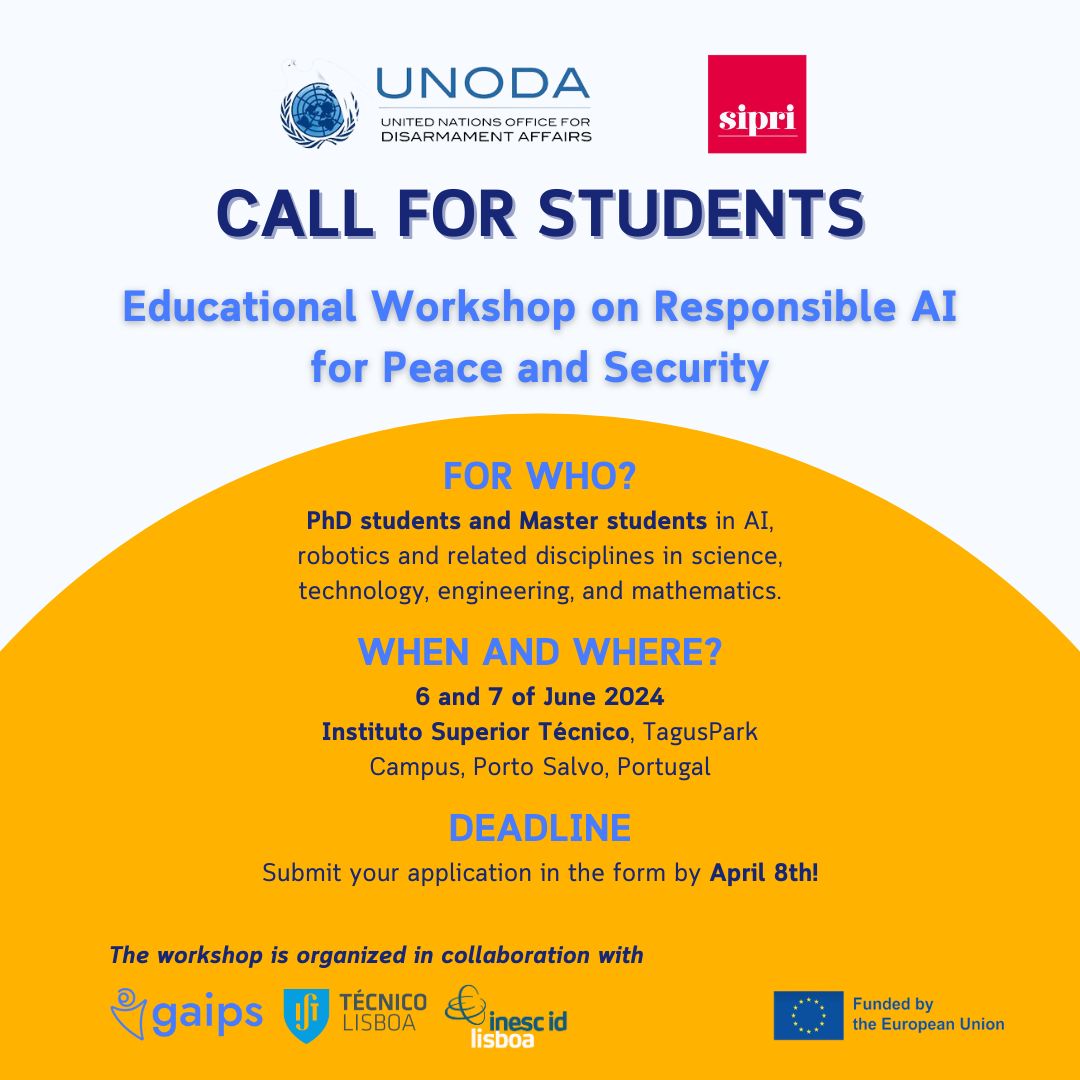Francisco S. Melo
Short Personal Interview
Francisco S. Melo was born in 1977, in Guarda, Portugal. He is an INESC-ID Researcher since 2009, integrating the Scientic Area Artificial Intelligence for People and Society (AIPS).

How did you get to INESC-ID?
I started in 2009 as an Associated Laboratory Researcher, and in 2010 I joined IST as a faculty. At that time, I became a senior researcher at INESC-ID.
INESC-ID is…
A research institution that fosters state-of-the-art research in electrical engineering and computer science and facilitates knowledge and technology transfer between academia and industry in Portugal.
Research project(s) under development
HOTSPOT – Human-robOt TeamS without PrecoOrdinaTion
ILU – Integrative Learning from Urban Data and Situational Context for City Mobility Optimization
How would you explain in the most accessible and least technical language possible, what is the application / expected results of this (these) project (s)?
HOTSPOT seeks to develop robots that can successfully collaborate with humans across multiple tasks.
ANIMATAS is a European initiative that seeks to build a network of PhD researchers in the area of human-robot interaction.
ILU seeks to improve traffic conditions in the city of Lisbon using Artificial Intelligence.
Tell us about your favorite project so far (or one of them)?
My favorite project so far was project INSIDE, which was a collaboration with several research institutions in Portugal and the USA, Portuguese companies and a Hospital, and investigated the use of robots in the therapy of children with autism spectrum disorders.
What are the biggest challenges of working in research in this area?
I work in artificial intelligence, specifically, a subarea of artificial intelligence known as machine learning. Currently, research in machine learning poses challenges along three orthogonal “perspectives”:
– Scientific: In spite of the big successes of research in machine learning and artificial intelligence, current methods require absurd amounts of data and computation. One of the challenges is, therefore, to reduce the requirements of such methods. Another important challenge is related with interpretability: the aforementioned successes rely on complex models that are hard to interpret by humans, which brings forth several issues (e.g., trust).
– Ethical: Relying on large amounts of data, machine learning algorithms are naturally subject to the biases that humans exhibit, and thus the algorithms tend to exhibit the same sort of discriminative outputs that are present in the data. Pursuing research in machine learning that mitigates the effect of such biases is, therefore, a very relevant challenge in this area.
– Methodological: The large amount of computation required by state-of-the-art algorithms requires that institutions performing research in these areas have large computational budgets available, with two important consequences: institutions with humbler budgets find it challenging to compete with larger institutions/companies, and must therefore find research “niches” where the computation is a less central requirement; on the other hand, the results portrayed in many articles are hard to reproduce without access to such computation, which brings about the challenge of reproducibility.
What book are you currently reading?
- Sapkowski, “Blood of Elves”.
How would you explain to your child (or your parents or grandparents) what your job is? How do you explain what means to be a researcher in this area?
My job is to make machines more intelligent and able to learn.
How do you see the mission of INESC-ID “to produce added value to people and society, supporting the response of public policies to scientific, health, environmental, cultural, social, economic and political challenges, in the fields of Computer Science and Electrical and Computer Engineering”?
I think that, in light of the technological advances of recent years, if INESC-ID is able to keep this mission in sight during its internal and external strategic decision-making, it has a unique opportunity to position itself as a top research institute at the national, European and even at the world level.
…
Email *
fmelo@inesc-id.pt
Linkedin Profile Link
https://www.linkedin.com/in/francisco-melo-aba83b8/
Academic Degree
PhD in Electrical and Computer Engineering
Training / Research Area(s)
Artificial Intelligence (Machine Learning/Reinforcement Learning)
INESC-ID Scientific Area *
Artificial Intelligence for People and Society (AIPS)
Upcoming Events
NII International Internship Programme Presentation and Q&A by Emmanuel Planas

On April 30, Emmanuel Planas, the acting director of the Global Liaison Office (GLO) and responsible for the internationalisation program at the National Institute of Informatics (NII) in Tokyo, Japan, will give a presentation to introduce the NII and its internship program to INESC-ID students and IST’s Master’s in Computer Science students.
Date & Time: April 30, 14h00
Where: Sala Polivalente, Técnico – Taguspark
“The NII International Internship Program is an exchange activity with students from institutions with which NII has concluded a Memorandum of Understanding (MOU) agreement. This incentive program aims at giving interns the opportunity for professional and personal development by engaging in research activities under the guidance and supervision of NII researchers.
The NII Internship Program is open to Research Master’s and PhD students who are currently enrolled at one of the partner institutions that have signed an MOU agreement with NII.”
Educational Workshop on Responsible AI for Peace and Security (UNODA)

On June 6 and 7, The United Nations Office for Disarmament Affairs (UNODA) and the Stockholm International Peace Research Institute (SIPRI) are offering a selected group of technical students the opportunity to join a 2-day educational workshop on Responsible AI for peace and security.
The third workshop in the series will be held in Porto Salvo, Portugal, in collaboration with GAIPS, INESC-ID, and Instituto Superior Técnico. The workshop is open to students affiliated with universities in Europe, Central and South America, the Middle East and Africa, Oceania, and Asia.
Date & Time: June 6 a 7
Where: IST – Tagus Park, Porto Salvo
Registration deadline: April 8
Summary: “As with the impacts of Artificial intelligence (AI) on people’s day-to-day lives, the impacts for international peace and security include wide-ranging and significant opportunities and challenges. AI can help achieve the UN Sustainable Development Goals, but its dual-use nature means that peaceful applications can also be misused for harmful purposes such as political disinformation, cyberattacks, terrorism, or military operations. Meanwhile, those researching and developing AI in the civilian sector remain too often unaware of the risks that the misuse of civilian AI technology may pose to international peace and security and unsure about the role they can play in addressing them. Against this background, UNODA and SIPRI launched, in 2023, a three-year educational initiative on Promoting Responsible Innovation in AI for Peace and Security. The initiative, which is supported by the Council of the European Union, aims to support greater engagement of the civilian AI community in mitigating the unintended consequences of civilian AI research and innovation for peace and security. As part of that initiative, SIPRI and UNODA are organising a series of capacity building workshops for STEM students (at PhD and Master levels). These workshops aim to provide the opportunity for up-and-coming AI practitioners to work together and with experts to learn about a) how peaceful AI research and innovation may generate risks for international peace and security; b) how they could help prevent or mitigate those risks through responsible research and innovation; c) how they could support the promotion of responsible AI for peace and security.”